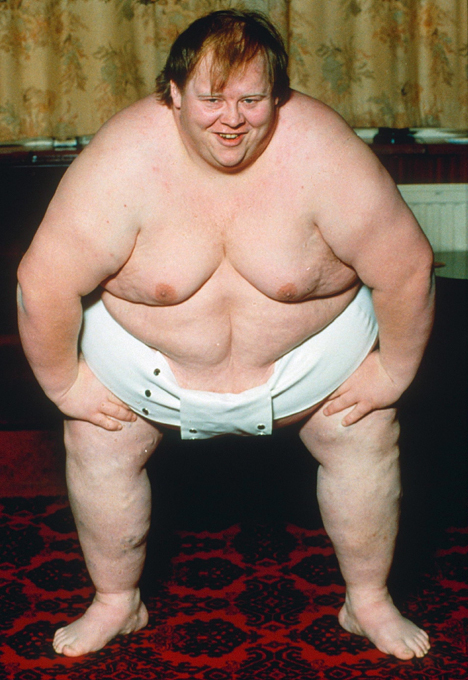The danger of obesity

People are generally considered obese when their body mass index (BMI), a measurement obtained by dividing a person's weight by the square of the person's height, is over 30 kg/m2, with the range 25-30 kg/m2 defined as overweight
People are generally considered obese when their body mass index (BMI), a measurement obtained by dividing a person's weight by the square of the person's height, is over 30 kg/m2, with the range 25-30 kg/m2 defined as overweight

Obesity is most commonly caused by a combination of excessive food intake, lack of physical activity, and genetic susceptibility
Obesity is most commonly caused by a combination of excessive food intake, lack of physical activity, and genetic susceptibility

A few cases are caused primarily by genes, endocrine disorders, medications, or mental illness. The view that obese people eat little yet gain weight due to a slow metabolism is not generally supported. On average, obese people have a greater energy expenditure than their thin counterparts due to the energy required to maintain an increased body mass
A few cases are caused primarily by genes, endocrine disorders, medications, or mental illness. The view that obese people eat little yet gain weight due to a slow metabolism is not generally supported. On average, obese people have a greater energy expenditure than their thin counterparts due to the energy required to maintain an increased body mass

besity is a leading preventable cause of death worldwide, with increasing rates in adults and children.In 2014, 600 million adults (13%) and 42 million children under the age of five were obese
besity is a leading preventable cause of death worldwide, with increasing rates in adults and children.In 2014, 600 million adults (13%) and 42 million children under the age of five were obese

Obesity is more common in women than men.Authorities view it as one of the most serious public health problems of the 21st century
Obesity is more common in women than men.Authorities view it as one of the most serious public health problems of the 21st century

Obesity is stigmatized in much of the modern world (particularly in the Western world), though it was seen as a symbol of wealth and fertility at other times in history and still is in some parts of the world
Obesity is stigmatized in much of the modern world (particularly in the Western world), though it was seen as a symbol of wealth and fertility at other times in history and still is in some parts of the world

In 2013, the American Medical Association classified obesity as a disease
In 2013, the American Medical Association classified obesity as a disease

The word's most obese man, according to the Guinness Book of World Records, was a Londoner Keith Martin, whose weight reached the maximum of 444 kilos. He died from pneumonia at age 44 in 2014
The word's most obese man, according to the Guinness Book of World Records, was a Londoner Keith Martin, whose weight reached the maximum of 444 kilos. He died from pneumonia at age 44 in 2014



